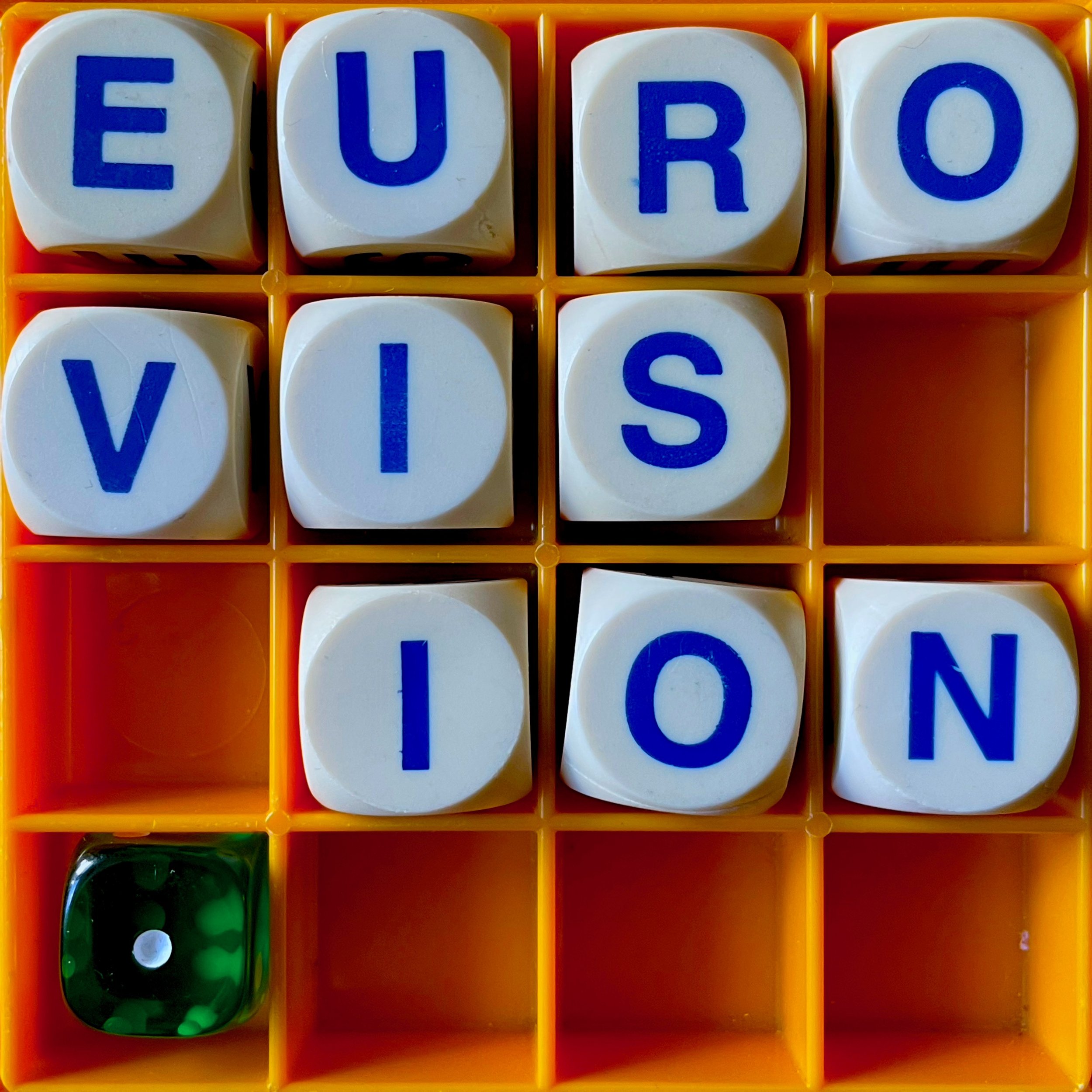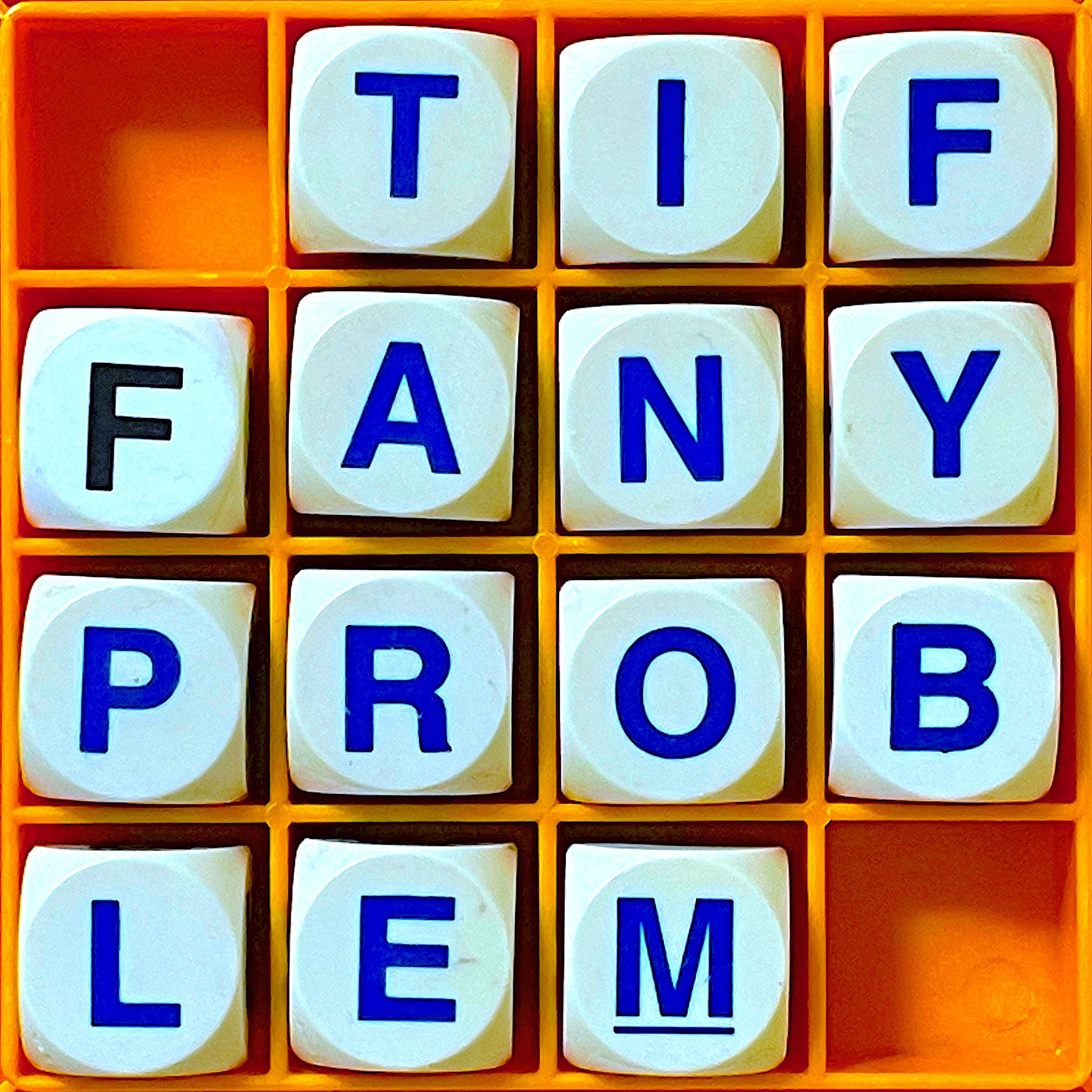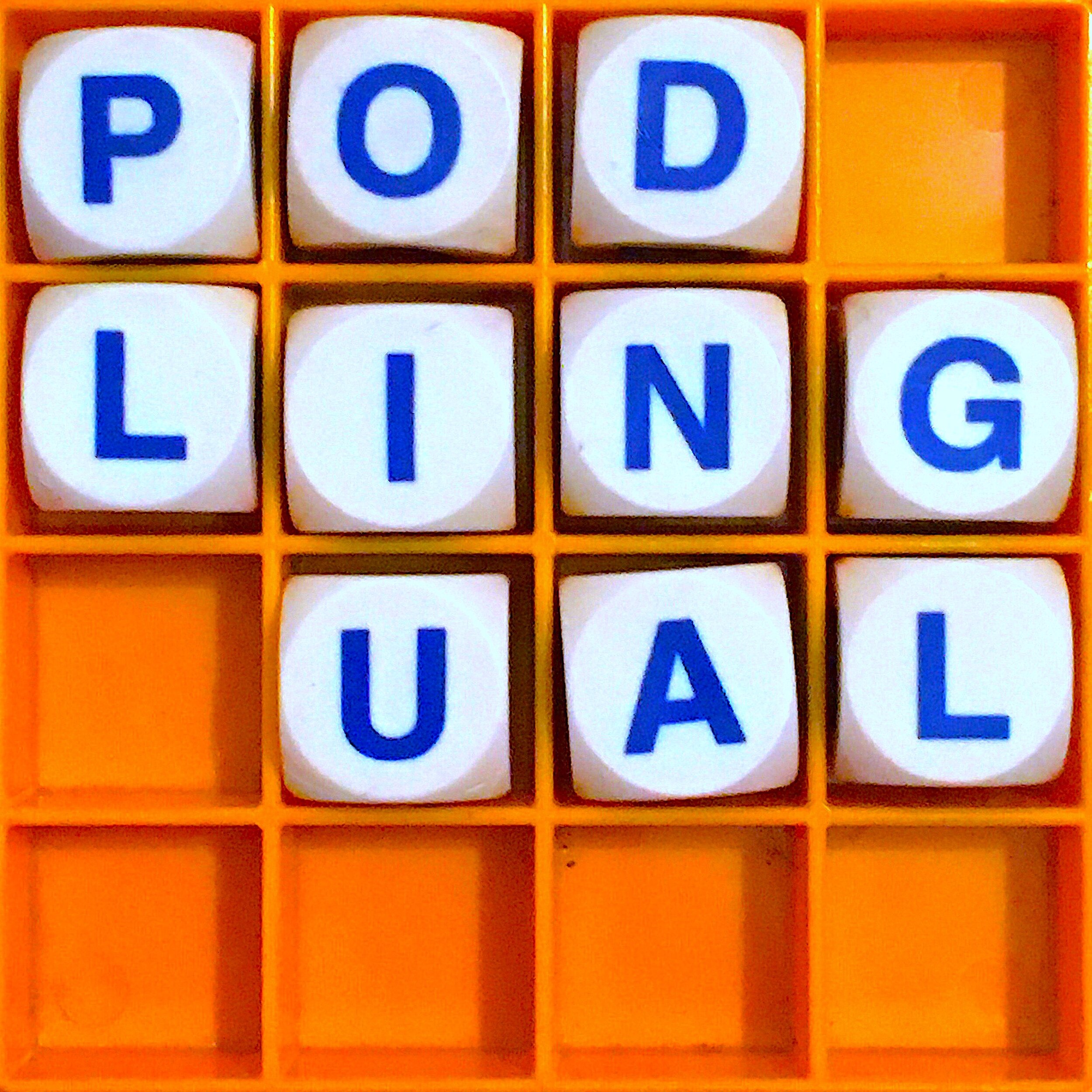HZ: So how do you go about building a glossary when you have to do that yourself from scratch?
MARWAN KAABOUR: Yes, it's a good question. Like, why would a graphic designer with a steady job decide to open this can of worms?
Allusionist 174 Eurovision part 1 transcript
The Eurovision Song Contest has given us the international renown of Celine Dion, Måneskin, Dana International, Conchita Wurst and Riverdance; tear-off skirts, nul points, shiny shiny costumes, a band of babushke dancing around an onstage bread oven; not to mention fraught politics, within and between nations. And most importantly for our purposes: linguistic intrigue! So much linguistic intrigue.
Read moreAllusionist 155 The Tiffany Problem transcript
JO WALTON: What we the readers know about the name Tiffany is incorrect. Nevertheless, as a writer, you cannot use the name Tiffany.
Read moreAllusionist 131 Podlingual transcript
JAMES KIM: I wanted that experience for everybody to be in the character's shoes, and understand how it's like for somebody that you love to talk to you, but you can't understand a word that they're saying.
Read moreAllusionist 118 Survival: Bequest transcript
ELIZABETH KEREKERE: I'm so convinced that transphobia, biphobia, homophobia are such an integral part of colonisation, I reject that as a colonial construct, I reject it as racist.
As they took our land - tried to take all of our land, tried to take all of our language and suppress our culture, they also took our expressions of sexuality and gender. And that is important to us in a core part of our culture, especially because the way that the institutional racism, the intergenerational trauma that is the legacy of colonisation has impacted on us and the levels of discrimination against people with diverse genders, sexualities and sex characteristics, that we see that all of this, all of this was a massive attempt to cover up what was already there and pretend it never happened.
Allusionist 92. To Err Is Human - transcript
SUSIE DENT: There never has been a golden age when everything was as it should be ever. Even though we tend to think that English is now at its most dumbed down, always; I think every generation has thought that.
Read moreAllusionist 69. How the Dickens stole Christmas - transcript
GREG JENNER: ‘Dickensian’ is quite a tricky word, actually. I think we don’t always necessarily know what we mean when we say it. As a word it conjures up poverty, perhaps; a sense of squalor; a sense of people trapped in this brutal society where there is no safety net, no fall-back plan; where children and women can suddenly be cast into a life of poverty or crime or violence. But 'Dickensian' also should summon up some of the beautiful things as well, some of the wonderful things he harnesses. When we look at A Christmas Carol, the way he depicts the street scenes, singing to each other, the sense of community, the shop windows filled to the brim with delicious goods and treats to eat on Christmas day and toys, this is also a bountiful visual iconography. Dickens conjured up both quite alarming and also quite enrapturing, entrancing visions of what a city and a community could be. So 'Dickensian' tends to be quite negative, but it should apply to all the different worlds that Dickens created, and some of those were rather pleasant and lovely, and some of those were rather cruel and dark.
KATIE MINGLE: What's the deal with Christmas?
AVERY TRUFELMAN: Dickens?
KATIE MINGLE: Yeah.
HZ: Yeah! A lot of authors have written about Christmas, but don’t have festive fairs devoted to them. Why is Dickens the one who gets to be the adjective? Why is he given credit for Christmas?
GREG JENNER: Charles Dickens's Christmases are not brand new in 1843. You know one of the things people often say is Dickens invented Christmas, which is absolute nonsense, of course he didn't.
Read moreAllusionist 33: Please - transcript
Growing up in England reading American books and watching American films and TV, I deduced that 'pants', 'biscuit', 'chips' and 'fanny' don’t mean the same in the US as they did at home. But I thought I was on familiar ground with the word ‘please’. Technically ‘please’ does mean the same thing in both places, but I had absolutely no idea it is deployed quite differently on our respective sides of the Atlantic.
Until the piñata of my ignorance was smashed open by linguist Lynne Murphy, who has been researching ‘please’.
LYNNE MURPHY: Several people have observed that the British say ‘please’ twice as much as Americans do. But they generally hadn’t looked at if there was a reason for that, other than assuming the British are more polite - more particularly, the English are more polite than Americans. So we wanted to go in and look at when British and American people are using ‘please’, and see if it’s just that Americans don’t bother so much, or are they using the word for different jobs?
Read moreAllusionist 17: Fix, part I - transcript
Most of the questions I get asked about the English language can be boiled down to this: why is English such an idiosyncratic mess? And why has nobody tried to sort it out?
Well, some people did kind of try. For hundreds of years, English had been a swirling concoction full of Latin, German and French thanks to all the invasions of Britain, plus words English had nicked from other languages, all refusing to behave regularly or obey rules consistently, and riddled with silent Gs.
300 or so years ago, some decided they had HAD ENOUGH.









